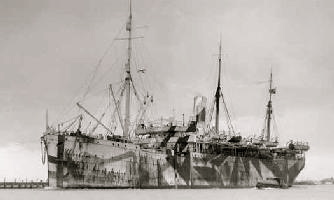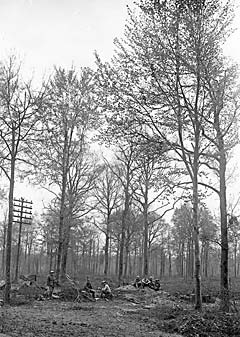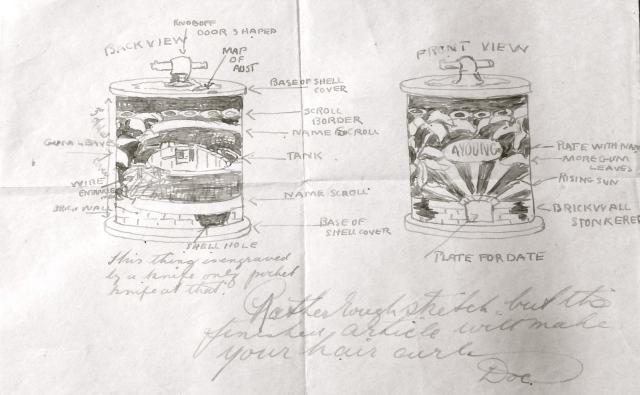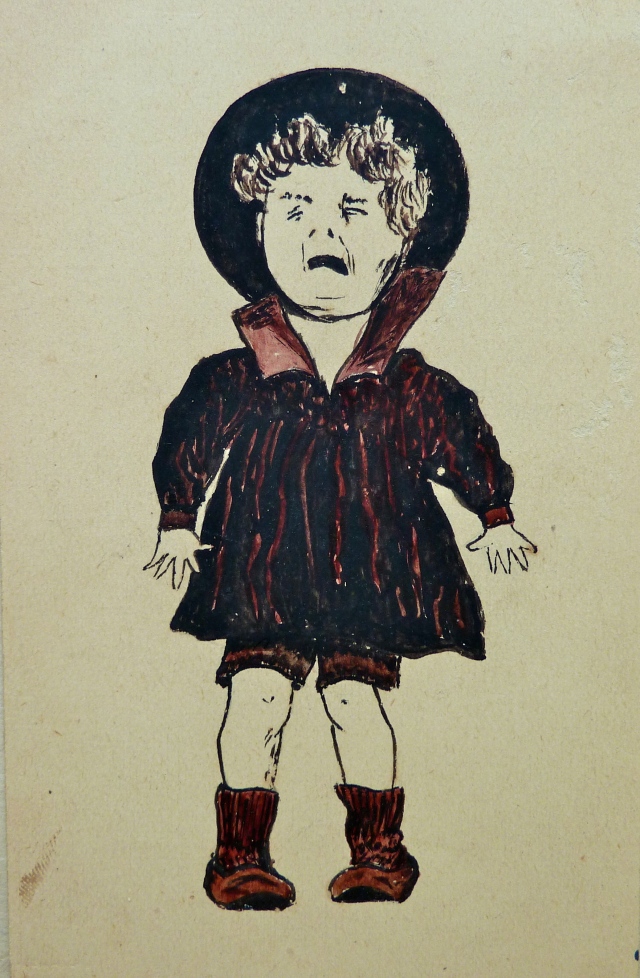Excerpts of notes home from War Hospital, Northampton, August 1918
‘Suppose I’m going to get another row because of not writing. If you do you will be growling at a disabled soldier. Fact is Tot old girl we couldn’t write letters the days we were in the trenches and, after that lot, things were moving too quickly to start a letter. Hope you get the set of pictures I sent you. They gave me some trouble, I can tell you. Good night……’
***********************************
‘Try and get hold of a good map of France and go to Hammel, absolutely the worst portion of the Australian front, dip a little south-east and Corbie forms a landmark. This place was never taken by Fritz although he tried hard enough. The cathedral is knocked about something awful. Villers Bretonneax ends a divisional sector. Further east you’ll find Hangard as far as the Australian sectors run.
Now find Albert, trace the line east again as far as to Montdidier and you have the great BRITISH push. But when I left France, there wasn’t a Tommie ( a Pom) to be found between these two places. The Australians and French held the sector. Then the Canadians came up and took over a sector and the French Canadians and Australians made the big advance. Yet it is called a great BRITISH victory. Absolutely nothing said about the Colonials.
It’s a dead nark to be classed alongside an army that runs. You may have heard of the (British) 5th Army and how they let us all down. Oh, by jove, I’ve got some lovely yarns to spin over the Somme business. You see, I happened to be amongst the first to arrive down there after Fritz had set the “Never Retreats” (the British) on the run. By jove Tot old girl, it makes one mad when one gets to understand what a red tape affair the Imperial Army is. Can you imagine an Army Corps (ours) stepping in and taking the place of an army. That is what our Boys did when they were rushed headlong to that Somme. Let the colonials do it. You read the papers of how the Anzacs go so cheerfully and willingly to a raid, of how they take this and that – but you never hear how many get back. I’ll speak on it again later.
I’ll write to Alex and write up everything that has taken place as I have it in my Diary. Then, if he thinks fit, you can send it home (for all to read) but let it rest at that. But Grace had better not see it, as reading the whole affair looks exceedingly over the fence but I can assure you that every part is true. One has to be right in this war to realise what an awful thing it is. But enough of the flaming argument, I’m fair sick of it…..’
*******************************************
‘Tot old girl you can rest assured that a letter is posted and has been to everyone regularly every week. Only once did I miss and I’m not going to talk about that – sufficient to say that I was extra very busy at that time. And, I was nearly blind for a couple of weeks while in the hospital and was not allowed to use my eyes over much so that cut out a good few letters.
I’m waiting on that parcel of biscuits you are sending. I would like to get them whilst I am still here as the food question here is rather unsettling. To pass the time, the nurses are organising a whist drive tomorrow and I am Master of Ceremonies. Bet your sweet life I am.
So (sister) Nell has arrived at the Diploma standard. That bit was the most satisfying bit of news I have heard for quite a long time. I don’t know whether I had any say in it, in fact don’t quite see just what she could do with that old 5 bob I left as my contribution, but all the same I’m some proud of my sister.’
************************************
Back in camp. September 1918:
‘Suppose I had better write but I’m hanged if I feel like it. You see I have been getting shoved here and pushed there for the past fortnight and my nerves are beginning to feel the strain. Fact is Tot old girl, I think I must be fed up. I’ve been in this camp nearly a week without a penny to my name, no letters and not a pal. Of course, I have several of the latter now but they happen to be in the same boat as myself. Haven’t had a word from Jack lately.
By hooky I got the shock of my life tother night, walked into the Canteen and was pulled up by a blue-haired dinkum Aussie named Bert Young as large as life and not a bit different. He is waiting for a boat (to Australia), the lucky beggar. He came over from France with the same thing as me but was able to convince the Doctor that a trip would do him good. I couldn’t, my dial is against me. Don’t think I could convince a grasshopper that (I’m not fit) to box-on provided I had my bayonet and rifle with me.
Met young Dick (Stan) here last night, so spent the day discussing Ballarat and Ascot Street in general. I heard tother day that Bobby Leurs had been killed at Hammel, the flaming place I came away from. I hope it is not true but I am afraid it is as young Dick had heard it too. Rotten bad luck. I was knocked all of a heap when I heard it.’
*************************************
October, 1819: Your very welcome letter turned up t’other day and for same many thanks. I reckon that Tobacco Jar will have arrived long ‘ere this, that is, if it is destined to get as far as Victoria. I entrusted it to a pal of mine who was leaving France on leave and have had word to say that he got it away safely from London. Am sorry I did not fill it up with the rest of my stuff as I was knocked out soon after and did not see any more of my souvenirs. Am afraid the Jewel Box I made for Grace shall have to wait till I get back to France.
(When I left France), my pal Snowy got hold of my valise and saved the best part of my personal stuff – but some ‘kind’ guy had been there beforehand! Snowy got the Keeper of our Canteen (dry) to take charge of them for me. He is an old friend of mine. I guess they are fairly safe. The chap who helped me make all these things is in hospital at Bristol, minus a leg. Stiff luck for him.’
*****************************************
‘I got a letter from Jack tother day. He says he was over here on leave in September. By gum we both seem to be walking around one another don’t we? The blighter went up to Scotland too and I was looking for a pal. By jove, I’ve missed him at every turn. He is still in the line. I think his crowd must be the only Australians in the argument at present. Andrew did have some luck getting home but I was some relieved to hear it all the same. I tell you, I did feel pretty small coming over here and leaving Ma and Nell (on their own) but now that Bowler (Andrew) managed to get back, I’m mighty relieved I can tell you.
Well, I’ll slip away now and warm myself. It’s as cold as any old thing here at present.
I am Your loving Brother
Hughie
























